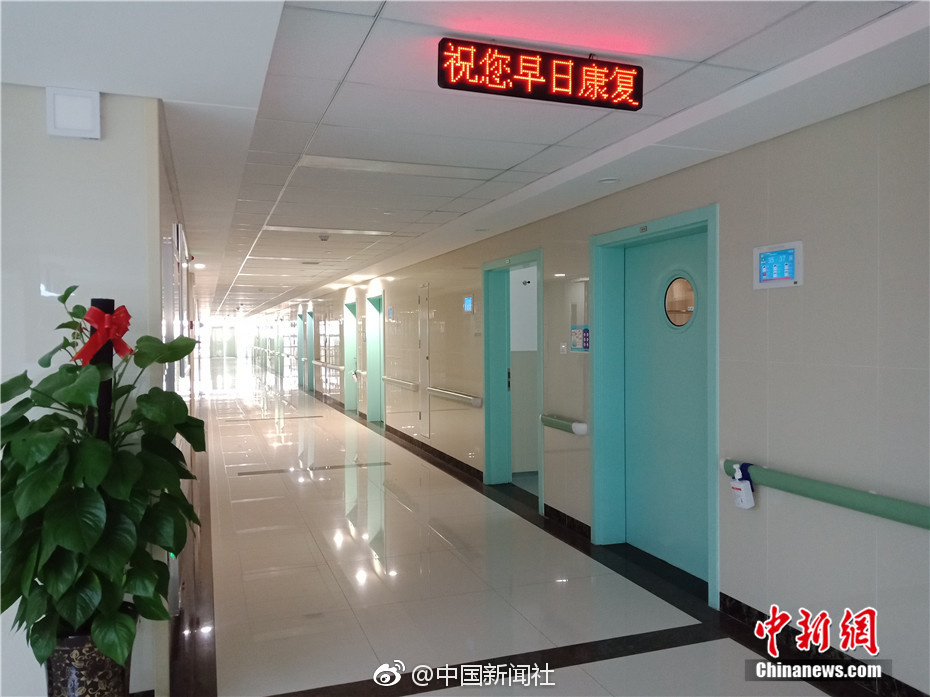
1. The five functions of the operating system are processor management, memory management, device management, file management and job management. Processor management The most basic function of processor management is to process interrupt events. After configuring the operating system, various events can be processed.
2. The main function of the computer operating system is process management, and its work is mainly process scheduling. In the case of a single user and a single taskNext, the processor is only monopolized by one user's task, and the process management work is very simple.
3. Operating System (abbreviation: OS) is a group of interrelated system software programs that supervise and control computer operation, use and run hardware, software resources and provide public services to organize user interaction.
4. Five major management functions of the operating system: (1) Job management: including tasks, interface management, human-computer interaction, graphical interface, voice control and virtual reality, etc. ( 2) File management: also known as information management. ( 3) Storage management: The essence is the management of storage "space", which mainly refers to the management of the main memory.
Any information system has five basic functions, namely: information collection and recording (input); information storage; information processing; information transmission; information output .
According to the functional introduction of the information system, the information system has five basic functions: input, storage, processing, output and control. Different functions have different functions, such as input function: the input function of the information system is determined by the purpose to be achieved by the system, the ability of the system and the permission of the information environment.
Five basic functions of the information system: input, storage, processing, output and control. Input function: The input function of the information system is determined by the purpose to be achieved by the system, the ability of the system and the permission of the information environment.Storage function: Storage function refers to the ability of the system to store various information and data. Mainly including: statistical functions.
The operating system has five functions: processor management: mainly controls and manages the work of the CPU. Storage management: mainly allocate and manage memory. Device management: mainly manage basic input and output devices. File management: responsible for the organization, storage, operation and protection of computer files.
The functions of the computer operating system include: processor management, memory management, device management, file management, job management and other functional modules. Processor management. The most basic function of processor management is to handle interrupt events. The processor can only detect interrupt events and generate interrupts and cannot process them.
The main function of the computer operating system is process management, and its main work is process scheduling. In the case of a single user and a single task, the processor is only monopolized by one user's task, and the work of process management is very simple.
The main functions of the operating system are process and processor management, job management, storage management, device management and file management, as follows: process and processor management. Because the execution of the program must rely on the processor, only one program flow can be processed and executed at any time. Homework management.
I) Processor management The most basic function of processor management is to handle interrupt events. The processor can only detect interrupt events and generate interrupts, and cannot handle these interrupt events. After configuring the operating system, all types of events can be handled.Another function of processor management is processor scheduling.
Five management functions of the operating system: job management: including tasks, interface management, human-computer interaction, graphical interface, voice control and virtual reality, etc. File management: also known as information management. Storage management: The essence is the management of storage "space", which mainly refers to the management of the main memory.

The storage management function of the operating system is to manage memory resources. It mainly realizes memory allocation and recovery, storage protection and memory expansion. The device management of the device management operating system is responsible for allocating and recycling external devices, and controlling external devices to operate according to the requirements of user programs.
The functions of the computer operating system include: processor management, memory management, device management, file management, job management and other functional modules. Processor management. The most basic function of processor management is to handle interrupt events. The processor can only detect interrupt events and generate interrupts and cannot process them.
The five functions of the operating system are processor management, memory management, device management, file management and job management.Processor management The most basic function of processor management is to process interrupt events. After configuring the operating system, various events can be processed.
Casino Plus free 100-APP, download it now, new users will receive a novice gift pack.
1. The five functions of the operating system are processor management, memory management, device management, file management and job management. Processor management The most basic function of processor management is to process interrupt events. After configuring the operating system, various events can be processed.
2. The main function of the computer operating system is process management, and its work is mainly process scheduling. In the case of a single user and a single taskNext, the processor is only monopolized by one user's task, and the process management work is very simple.
3. Operating System (abbreviation: OS) is a group of interrelated system software programs that supervise and control computer operation, use and run hardware, software resources and provide public services to organize user interaction.
4. Five major management functions of the operating system: (1) Job management: including tasks, interface management, human-computer interaction, graphical interface, voice control and virtual reality, etc. ( 2) File management: also known as information management. ( 3) Storage management: The essence is the management of storage "space", which mainly refers to the management of the main memory.
Any information system has five basic functions, namely: information collection and recording (input); information storage; information processing; information transmission; information output .
According to the functional introduction of the information system, the information system has five basic functions: input, storage, processing, output and control. Different functions have different functions, such as input function: the input function of the information system is determined by the purpose to be achieved by the system, the ability of the system and the permission of the information environment.
Five basic functions of the information system: input, storage, processing, output and control. Input function: The input function of the information system is determined by the purpose to be achieved by the system, the ability of the system and the permission of the information environment.Storage function: Storage function refers to the ability of the system to store various information and data. Mainly including: statistical functions.
The operating system has five functions: processor management: mainly controls and manages the work of the CPU. Storage management: mainly allocate and manage memory. Device management: mainly manage basic input and output devices. File management: responsible for the organization, storage, operation and protection of computer files.
The functions of the computer operating system include: processor management, memory management, device management, file management, job management and other functional modules. Processor management. The most basic function of processor management is to handle interrupt events. The processor can only detect interrupt events and generate interrupts and cannot process them.
The main function of the computer operating system is process management, and its main work is process scheduling. In the case of a single user and a single task, the processor is only monopolized by one user's task, and the work of process management is very simple.
The main functions of the operating system are process and processor management, job management, storage management, device management and file management, as follows: process and processor management. Because the execution of the program must rely on the processor, only one program flow can be processed and executed at any time. Homework management.
I) Processor management The most basic function of processor management is to handle interrupt events. The processor can only detect interrupt events and generate interrupts, and cannot handle these interrupt events. After configuring the operating system, all types of events can be handled.Another function of processor management is processor scheduling.
Five management functions of the operating system: job management: including tasks, interface management, human-computer interaction, graphical interface, voice control and virtual reality, etc. File management: also known as information management. Storage management: The essence is the management of storage "space", which mainly refers to the management of the main memory.

The storage management function of the operating system is to manage memory resources. It mainly realizes memory allocation and recovery, storage protection and memory expansion. The device management of the device management operating system is responsible for allocating and recycling external devices, and controlling external devices to operate according to the requirements of user programs.
The functions of the computer operating system include: processor management, memory management, device management, file management, job management and other functional modules. Processor management. The most basic function of processor management is to handle interrupt events. The processor can only detect interrupt events and generate interrupts and cannot process them.
The five functions of the operating system are processor management, memory management, device management, file management and job management.Processor management The most basic function of processor management is to process interrupt events. After configuring the operating system, various events can be processed.
Hearthstone arena class win rates reddit
author: 2025-02-23 14:08Hearthstone arena class win rates reddit
author: 2025-02-23 13:43 Hearthstone Arena Tier List
Hearthstone Arena Tier List
582.15MB
Check UEFA live free
UEFA live free
494.81MB
Check UEFA European championship
UEFA European championship
672.44MB
Check Arena plus APK
Arena plus APK
676.76MB
Check App to watch Champions League live free
App to watch Champions League live free
486.67MB
Check DigiPlus stock
DigiPlus stock
195.28MB
Check UEFA Champions League standings
UEFA Champions League standings
935.63MB
Check Hearthstone arena
Hearthstone arena
351.32MB
Check UEFA EURO
UEFA EURO
636.84MB
Check Casino free 100 no deposit
Casino free 100 no deposit
257.79MB
Check Arena plus APK
Arena plus APK
531.65MB
Check UEFA Champions League live streaming free
UEFA Champions League live streaming free
657.23MB
Check UEFA Champions League live streaming app
UEFA Champions League live streaming app
994.59MB
Check UEFA EURO
UEFA EURO
358.71MB
Check App to watch Champions League live free
App to watch Champions League live free
298.74MB
Check DigiPlus Philippine
DigiPlus Philippine
982.72MB
Check Bingo Plus stock
Bingo Plus stock
356.15MB
Check Casino free 100 no deposit
Casino free 100 no deposit
361.81MB
Check Casino Plus
Casino Plus
643.62MB
Check DigiPlus stock
DigiPlus stock
654.62MB
Check Hearthstone deck
Hearthstone deck
638.88MB
Check App to watch Champions League live free
App to watch Champions League live free
578.14MB
Check Hearthstone deck
Hearthstone deck
344.11MB
Check Hearthstone arena
Hearthstone arena
397.66MB
Check UEFA Champions League live streaming app
UEFA Champions League live streaming app
334.18MB
Check UEFA Champions League live streaming free
UEFA Champions League live streaming free
845.75MB
Check LR stock price Philippines
LR stock price Philippines
841.96MB
Check UEFA live free
UEFA live free
791.54MB
Check Casino free 100 no deposit
Casino free 100 no deposit
857.78MB
Check DigiPlus
DigiPlus
681.75MB
Check Hearthstone Arena Tier List
Hearthstone Arena Tier List
111.57MB
Check Arena plus APK
Arena plus APK
898.74MB
Check Hearthstone arena deck Builder
Hearthstone arena deck Builder
796.72MB
Check Casino Plus
Casino Plus
662.81MB
Check Casino Plus GCash login
Casino Plus GCash login
323.45MB
Check Casino Plus GCash login
Casino Plus GCash login
842.16MB
Check
Scan to install
Casino Plus free 100 to discover more
Netizen comments More
2573 Casino Plus app
2025-02-23 13:48 recommend
1244 Free sports events uefa champions league app android
2025-02-23 13:29 recommend
2055 Casino Plus app
2025-02-23 13:16 recommend
1742 UEFA TV
2025-02-23 13:14 recommend
1666 Hearthstone Wild Decks
2025-02-23 12:08 recommend